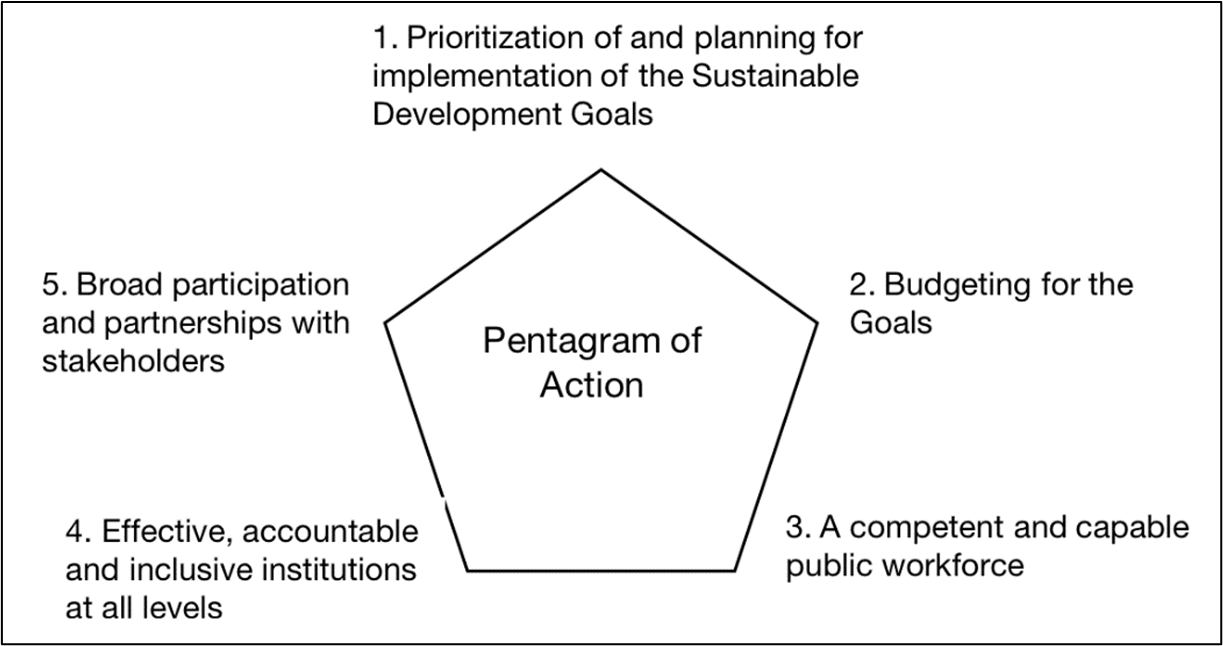
The 23rd session of the Committee of Experts of Public Administration (CEPA) took place in April 2024 against the backdrop of a weakening multilateral system and the emergence of a multipolar world - which could have existential repercussions for the United Nations, particularly its financing. In addition, the 2030 Agenda is off track or in reversal due to wide ranging causes, such as climate change, rising inequality, disruptive technological changes, lack of financing and outdated governance arrangements. This is, therefore, a moment to rethink our governance systems in order to deliver sustainable, resilient, innovative and citizen-centred solutions while taking into consideration shifting global contexts.
New governance insights and transformative actions were identified by the Committee in several areas to advance the Sustainable Development Goals (SDG) and eradicate poverty in line with the 2024 theme of ECOSOC and HLPF. The Committee raised some fundamental questions about the implications of a more fragmented world order and developed new government insights within the remit of different topics such as: regulating and reforming the insurance industry to combat climate change; building inclusive institutions that leave no one behind at the midpoint of the 2030 Agenda for Sustainable Development; innovations in public sector workforce governance; artificial intelligence governance; accelerating public financial management reform, and promoting sound public financial management in fragile and conflict-affected settings. The Committee also engaged in a dialogue with voluntary national review countries and voluntary local review cities that promotes peer exchange on experiences and promising practices in implementing SDGs 16 and 17.
Given the delays in implementation, the renewal of commitments by world leaders at the 2023 SDG Summit has provided an impetus to reinforce the relationship between the SDGs and National Development Plans (NDPs) to mobilize human and financial resources for delivery. An analysis of NDPs and vision documents of six countries in Africa and Asia, undertaken by Tarek Katramiz and Mahesti Okitasari in 2021, suggests that the integration of the SDGs at the national level (in NDPs) has rarely gone beyond mapping and reporting and that it remains unclear whether these plans can fully reflect the transformative potential of the SDGs.
Moreover, given the complex nature of the current polycrisis, risk management to address disaster preparedness and mitigation, as well as strengthen resilience, could be particularly relevant to future policy debates at the national and subnational levels. The establishment of the HLPF and the increasing engagement of countries can be considered as an acknowledgement of the unique importance of the SDGs at the global level.
The quality of public administration and governance arrangements is higher than ever on the political agenda at both national and global levels. There is growing consensus among countries that sustainable development can only be advanced through a multipronged approach comprising a commitment to the so-called pentagram of action to reinforce the 2030 Agenda for Sustainable Development as defined by the Committee (see figure 1).
Figure 1: Pentagram of action to reinforce the 2030 Agenda for Sustainable Development

Source: Committee of Experts on Public Administration
This ‘pentagram of action’ calls for effective communication by governments, and can serve to build mutual trust between governments, citizens, and other stakeholders with renewed shared ambitions.
By putting policy goals at the centre of the public debate and neglecting institutional reforms for their implementation, many governments, however, have risked falling short on action. Large public investments can be ineffective if the institutions that should ensure effectiveness, accountability and inclusiveness are not committed, ready or capable of delivering on the promise of the SDGs.
In addition, the pressures of compounding crises that societies are facing, including the Covid- 19 pandemic, the impacts of climate change, inflation, food insecurity, conflict, widening inequalities among and within countries, and weakening economic growth are prompting governments worldwide to remain in crisis management mode at the expense of SDG implementation.
Since emergency responses tend to crowd out SDG implementation, they can also increase tensions among competing policy priorities, which are further heightened by high levels of fiscal stress in many countries. Demands for financial resources to deal with multiple concurrent crises have been expanding rapidly, while fiscal space has become tighter in most countries. Anticipating decreased fiscal capacity has in turn led many governments to reduce public investment, notably in areas related to SDG implementation.
Going forward, one should consider one of the key messages of the 2023 Global Sustainable Development Report, namely that recent crises that have wiped out years of SDG progress are interrelated, fuelling each other’s intensities, but that these interconnections could be turned into opportunities to act in an integrated way to release synergies and achieve the SDGs. This links directly to urgently needed progress on building strong institutions in line with SDG 16, among others, by applying the Committee’s principles of effective governance for sustainable development and a whole-of-society and whole-of-government approach. This might also be the right moment to implement the “FutureGov” initiative aimed at building public sector capabilities for the future and improving public services, which could hopefully catalyse the required responses in society at large.
By Geraldine Fraser-Moleketi, Rolf Alter, Louis Meuleman, Lamia Moubayed and Alketa Peci, Members of the Committee of Experts on Public Administration
 欢迎来到联合国,您的世界!
欢迎来到联合国,您的世界!